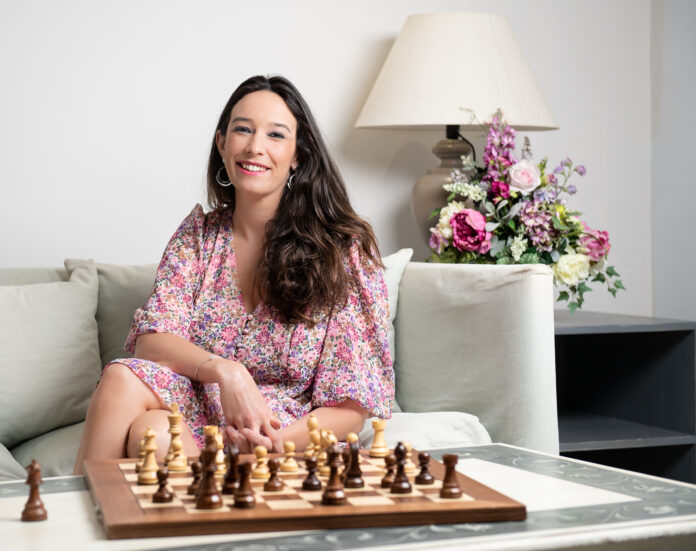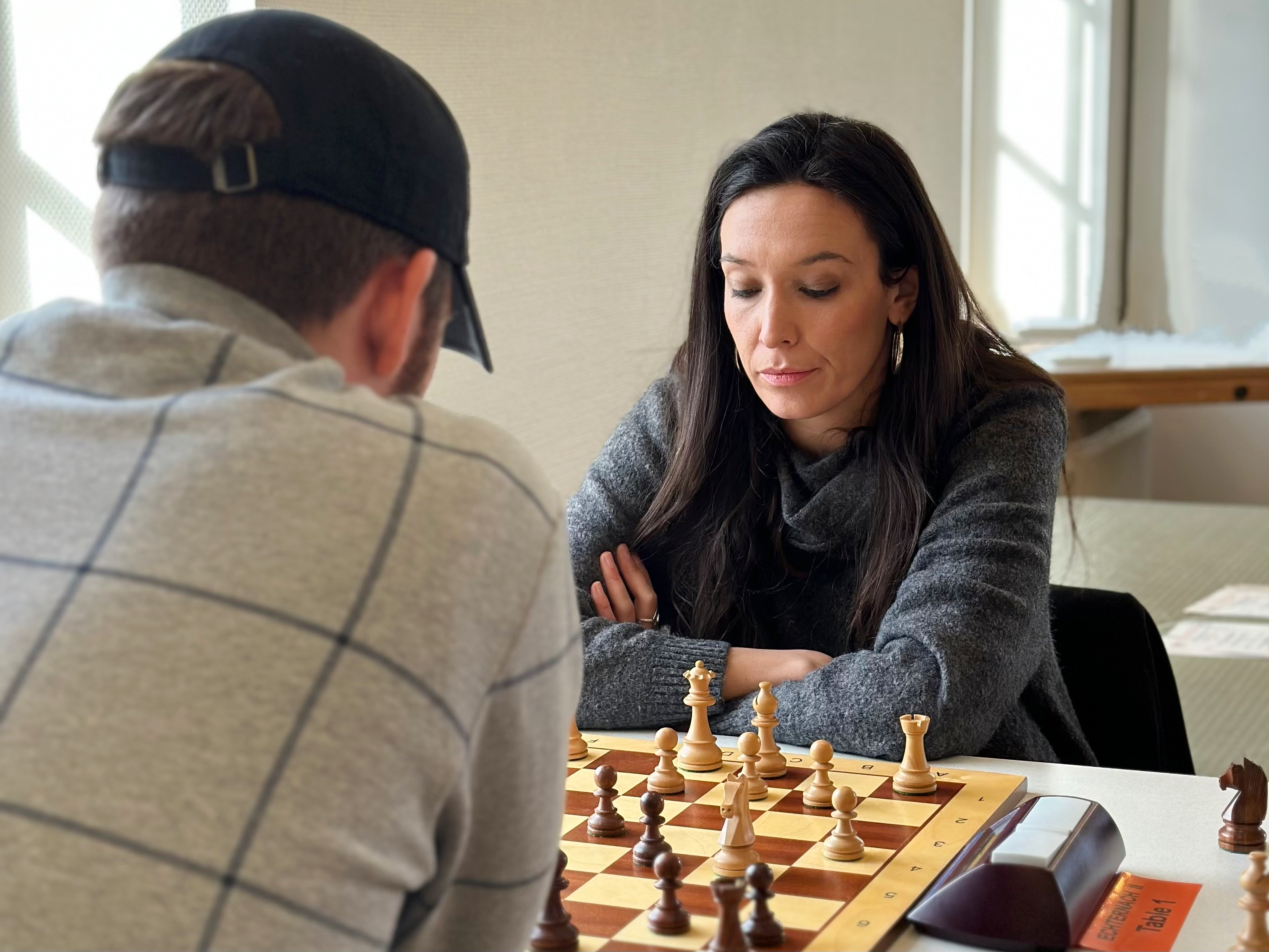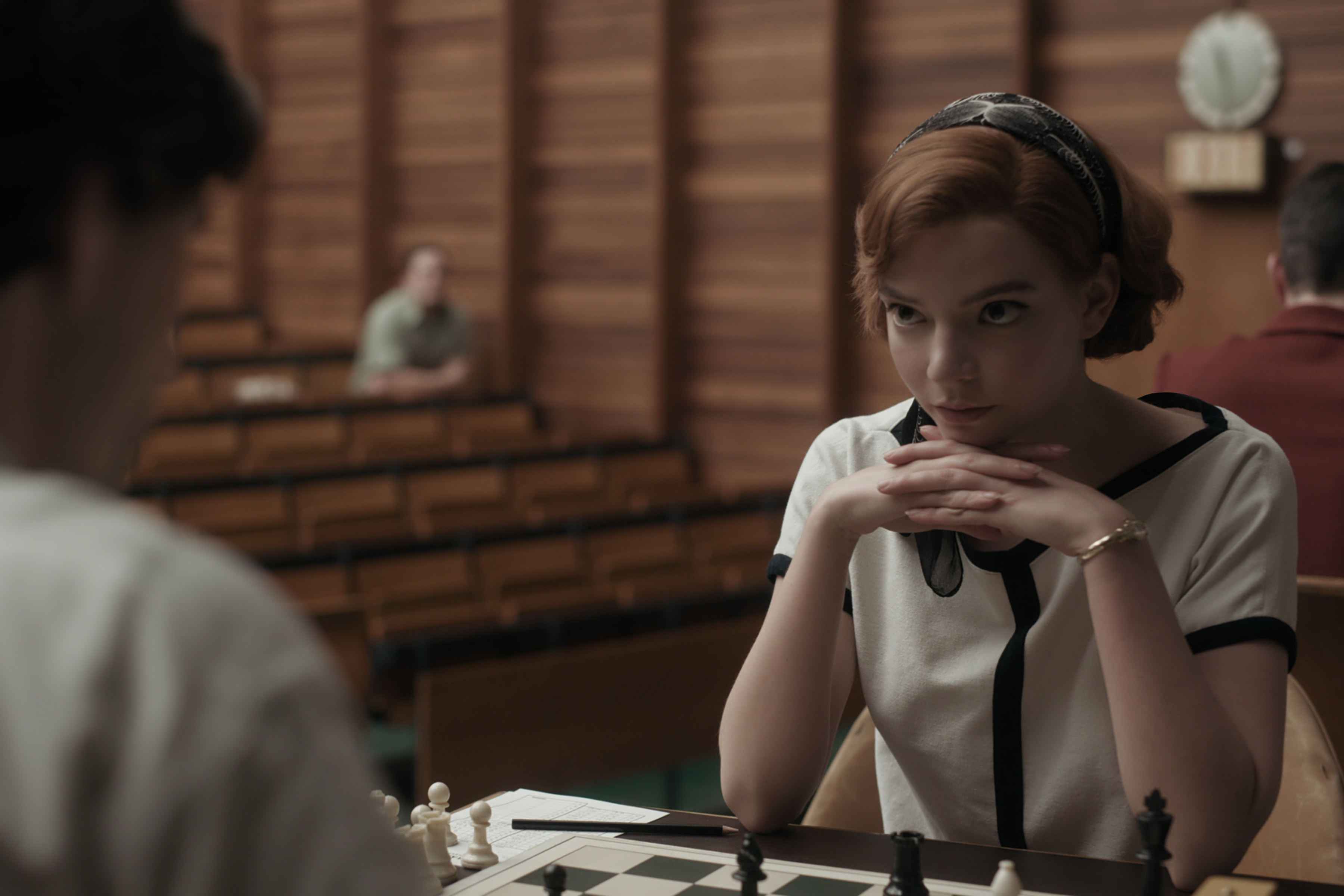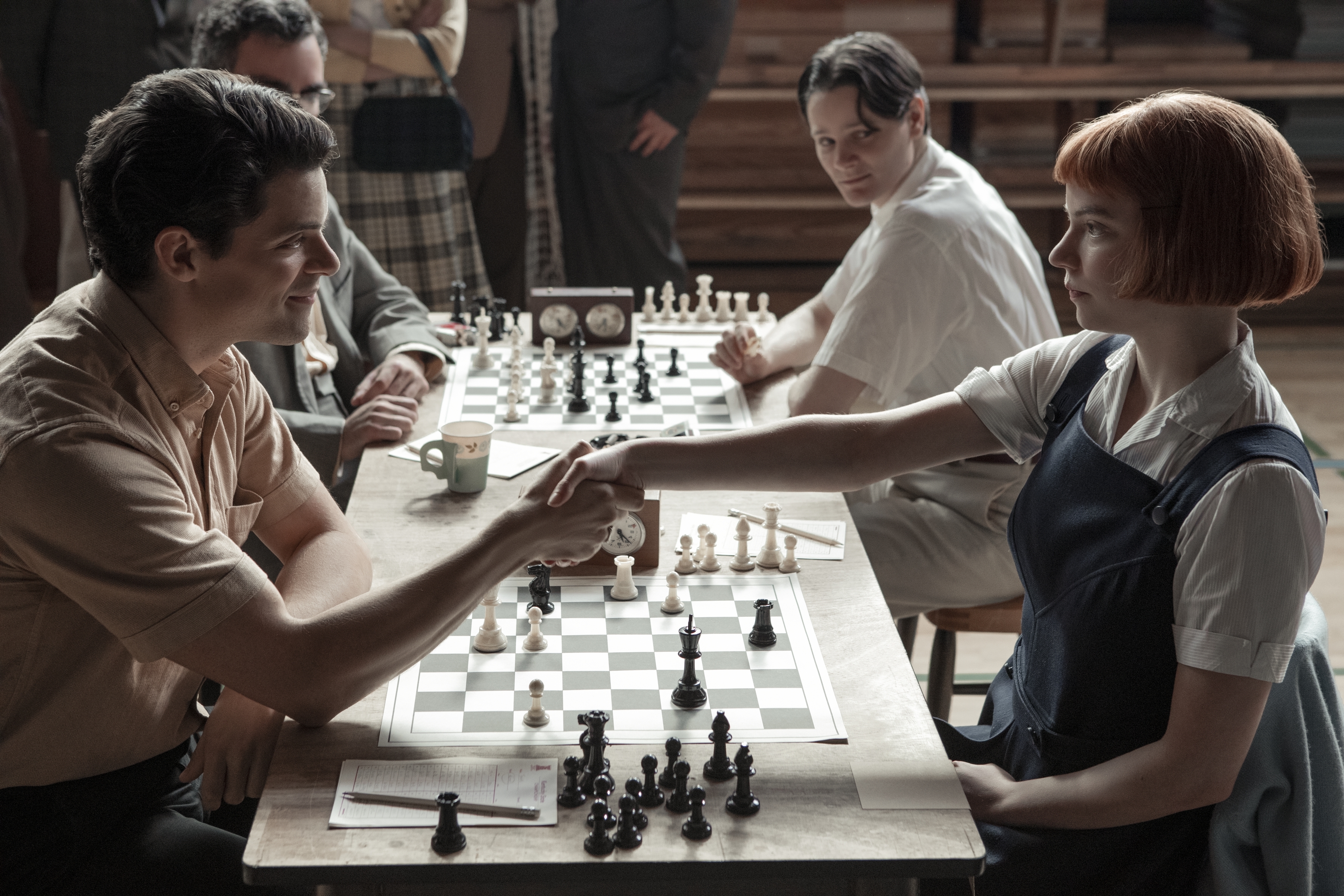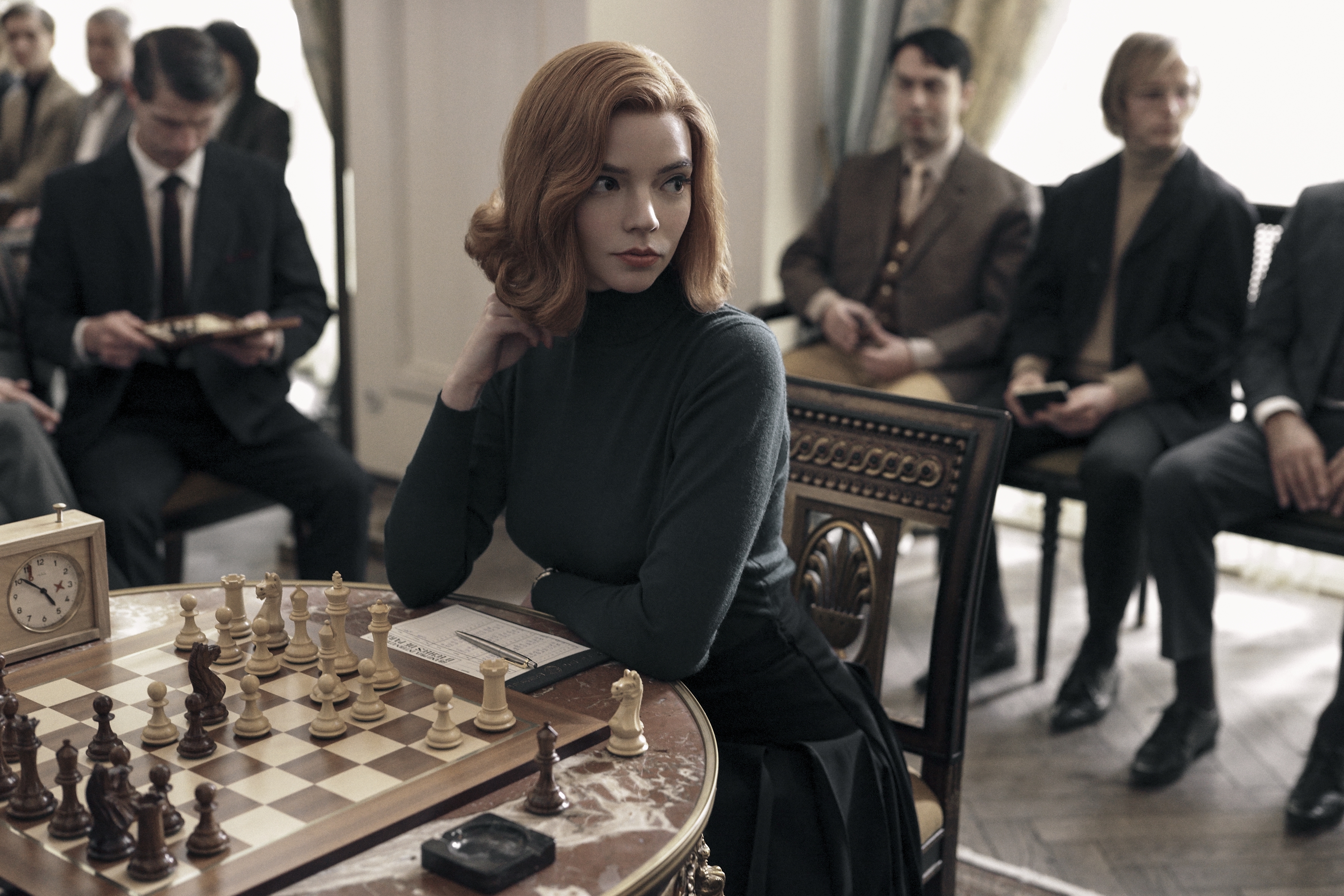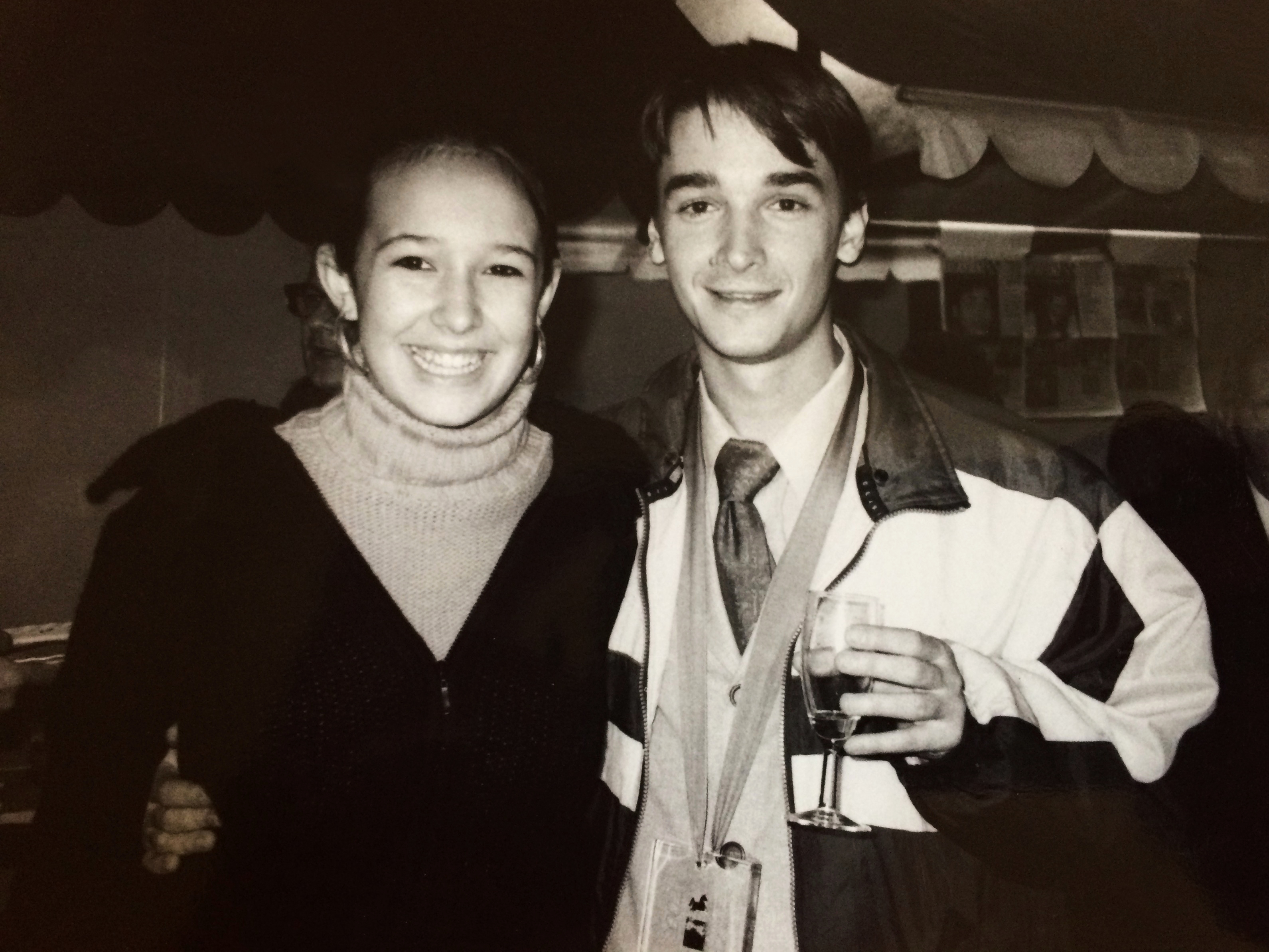The Netflix series, The Queen’s Gambit, resulted in a surge of interest in chess. Increasingly, women are becoming more involved in the game. Catherine Feore met with Luxembourgish, Woman International Master and chess commentator Fiona Steil-Antoni.
Steil-Antoni started playing chess when she was eight or nine years old. She was inspired by her father: “He had a passion for chess, he had so many chess books. He would sit over the chess board and play through games, sometimes a friend would come over to play friendly games. Eventually, I asked my dad to teach me the rules and I very much enjoyed playing. My younger brother also started playing.”
At school she had friends who were competing in tournaments and encouraged her to join them. However, her first experience of attending a tournament was not good: “I was completely horrified. I was overwhelmed because I was used to playing in the comfort of my home, I really didn’t like to see all these people and other people watching them play. I remember saying to my father on the way home, ‘I will never play in a chess tournament!’”
“Chess enabled me to make some incredible friendships, it also gave me the opportunity to travel as part of the national team”
She was slowly cajoled by her friends to go to tournaments, because they convinced her it would be fun. “Chess enabled me to make some incredible friendships, it also gave me the opportunity to travel as part of the national team,” she says. “I think there was a combination of two factors that motivated me to play: I loved chess and I loved the social aspect that came with it. Friends I made then are still some of my best friends.”
Fiona Steil-Antoni © Fernanda Figueiredo
I asked Steil-Antoni what she would say to parents, or a young person, who wants to play? “I think it’s a very personal decision, and that there’s no right or wrong way. You can join a club, the chess scene is thriving and you’d be surprised at how many clubs there are. They aren’t always good at publicizing themselves, but I’m sure that there will be some in Belgium. That’s one approach, but if that sounds a little daunting, there are so many other resources. If you want to become good you have to love the game and like everything in life, if you want to become really good that takes some dedication.”
Steil-Antoni commentates and develops resources on Chess.com. The app has a basic (free) membership, which already offers a lot, but for a small fee you can have access to videos, all lessons and much more – from beginners to mastery level – with lots of different teachers. My own habit is to follow the lessons of the teachers I like, even if some of the lessons go (well) beyond my level. Steil-Antoni is one of the experts who designs and guides you through the daily puzzles, helping you to find the solutions while offering advice on how to improve your chess thinking.
“Chess.com is the biggest app these days, with thousands of games being played daily. Also, there are books, my father has hundreds, maybe thousands; and again, when it comes to books there is so much choice: biographies of chess players, books on openings, puzzles, historic games… Then there is Twitch and streamers, I really think there’s something for everyone.”
“One of the most beautiful things about chess is that it is a game that doesn’t discriminate”
I ask Steil-Antoni if you can develop a decent game if you start at a later stage of your life: “Absolutely, it’s never too late to pick up chess. The basic rules are quite simple, but then it becomes harder. One of the most beautiful things about chess is that it is a game that doesn’t discriminate: against age, gender, disability, race. Its benefits have been scientifically proven and can really help with diseases like dementia. So I would say it is never too late.”
The Queen’s Gambit
Garry Kasparov, has said that Anya Taylor-Joy’s portrayal of the main character Beth Harmon in The Queen’s Gambit may have done more to promote chess worldwide than all the real-world champions: “I don’t know the exact numbers, but if you look at the Google searches for chess, after the series, they didn’t just go up a bit, there was an explosion! I do think it prompted the most spectacular interest in chess in my lifetime, for sure. It also came out during the pandemic, when people were stuck at home. It prompted a lot of people to learn and for others to take the game up again.”
“I very much enjoyed the series,” says Steil-Antoni, when I asked her what she thought of it. “Of course, some aspects might not be completely believable, some of the tournament scenes, for example, didn’t resonate 100% with what you would witness in real life, but I think the producers did a fantastic job. I very much loved the cinematography, the music, the acting.”
“I think it’s maybe difficult to compare a Netflix series with real life events, but the only event that might have had a comparable impact would have been the Bobby Fischer/ Spassky match in Reykjavik in 1972, but then you had the added backdrop of the Cold War.”
“There is still a long way to go, women are still a big minority in the game, but I’m hopeful that things are changing.”
As to whether the series will encourage more women to learn the game, she says that the scene has already changed a great deal since she started playing chess 25 years ago, “I think there’s been a lot of progress, there are many more role models. There is still a long way to go, women are still a big minority in the game, but I’m hopeful that things are changing. I’m seeing more initiatives for girls to start playing and to keep playing, so we’re definitely moving in the right direction.
As for her own role models, she says that she’s never really had a chess hero, per se, but when she was young she admired Alexander Morozevich, “There was a big chess tournament in Germany that my father took me to. Morozevich was playing and he played a very enterprising, very aggressive, very tactical type of chess. I remember he opened with the King’s Gambit, one of the romantic attacking openings in chess. I met him once and even spoke with him. He didn’t speak English, but a friend translated between German and Russian. My mom took a photograph, it’s one of my favourite photos.”
Alexander Morozevich and Fiona Steil-Antoni, from the Bled 2002 Olympiad
She admires a lot of the current generation of players, “Like most people in the chess world, I think it’s a great pity that Magnus Carlsen decided not to defend his title. He has done a lot for the game and has been reigning world champion for a decade. Of the new generation there are players like Gukesh D (India) and Nodirbek Abdusattorov (Uzbekistan). As a commentator, I’ve interviewed a lot of them and I feel almost an emotional component, because I’ve seen a lot of these players when they were ten or eleven, when I first spoke to them some of them could barely speak a word of English. To see them grow up and succeed is nice to see.”
There is also a very competitive Belgian player, Daniel Dardha: “He became Belgian champion for the third year aged only 16. He became a grandmaster at 15, so he’s one to keep an eye out for. He has a very high FIDE (International Chess Federation) chess rating of 2631. He’s going to be playing at one of the strongest tournaments in the United Arab Emirates and I’m hoping to interview him. He seems like a bit of a character.”
To learn more about chess in Belgium visit the site ‘The Royal Belgian Chess Federation’ (RBCF), the official national chess federation of Belgium.
www.frbe-kbsb-ksb.be
This article was published in the April/May 2023 edition of Together magazine.


